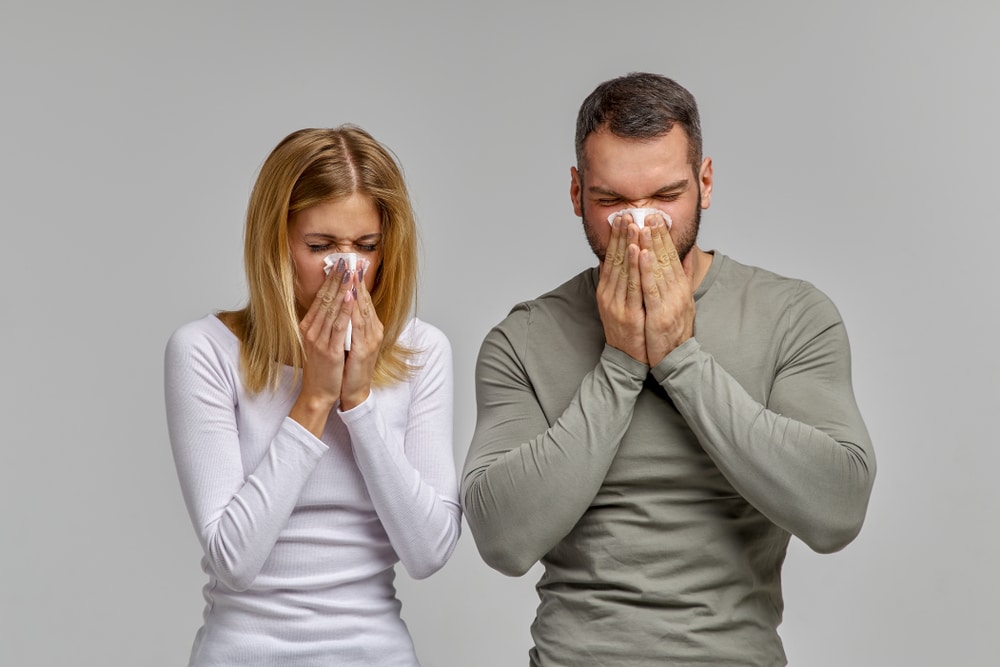Want to Reduce Coffee Intake? Have High Caffeine Tea!
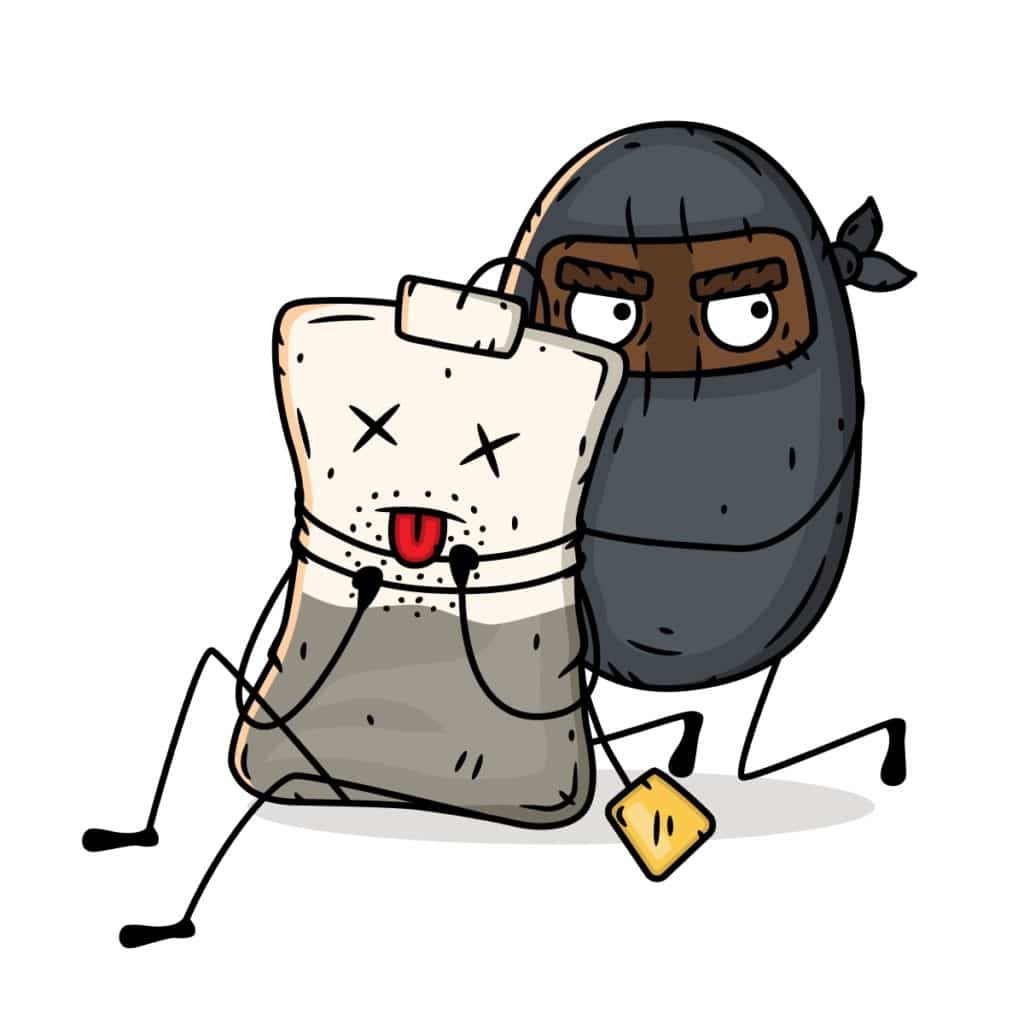
Are you trying to limit your coffee intake without going cold turkey? Then high caffeine tea could be your solution.
Or are you just interested in learning the caffeine content in different teas and what times of the day would be best to drink each one? Then keep reading cause we’ve got you covered with all the answers you’re searching for.
But first let’s talk about the health benefits of caffeinated teas!
High caffeine tea may have health benefits like lowering the risk of certain cancers, brain conditions, and liver problems. It may reduce mental health issues, boost long-term memory, and help against diseases like diabetes and heart disease (1).
Plus, caffeinated tea is a psychostimulant, which stimulates the central nervous system to help you focus. This stimulation could last for up to six hours, depending on each individual’s tolerance, so you could get a more sustained and leveled energy boost than coffee, and without the crash afterwards (2).
Caffeine in Tea
Caffeine occurs naturally in tea leaves; it is one of the compounds that gives tea its bitter taste. The type of tea leaves and the way they are harvested and processed, all influence the caffeine content in caffeinated tea.
Even some decaffeinated teas still contain some caffeine in them, but studies show the amount is generally less than 12 milligrams, which is nothing really (2). Unless you’re very sensitive to caffeine, then you might feel it a teeny tiny bit!
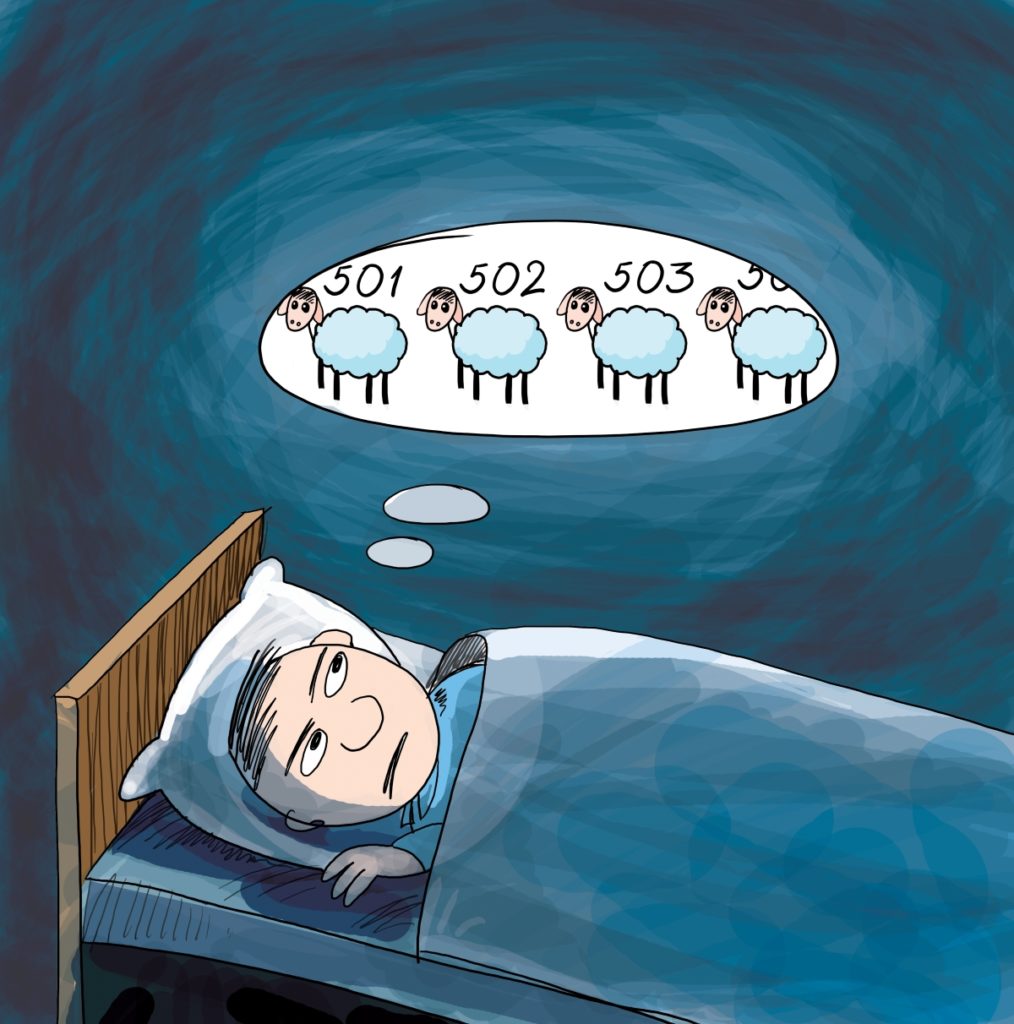
The amount of caffeine in a cup of tea can vary depending on a wide range of factors. Typically, in an eight-ounce cup of tea there will be anywhere between 13 to 60 milligrams of caffeine.
Another factor that can affect the difference in caffeine content is the steeping times which is controlled by the tea drinker. Here are some other factors:
- Variety of Tea
There are two different varieties of the camellia sinensis plant. The camellia sinensis var. sinensis, which is mainly found in China, and the camellia sinensis var. assamica, which is mainly grown in India. The camellia sinensis var. assamica variety tends to produce teas with the most caffeine. - Growing Techniques
Some growing techniques will include shading the tea plants for a few weeks before harvesting. This can increase the caffeine content. Teas like Matcha and other high quality Japanese teas are high in caffeine because this is generally the growing method that is used for them. - Processing Methods
High caffeine tea levels may also vary depending on how the tea is processed. Matcha, for instance, is made by grinding the whole green tea leaf into a powder. This increases the caffeine content since you are actually consuming the whole tea leaf. - Harvesting
Harvesting the tea leaves in the spring also results in high caffeine tea because the leaves tend to be smaller in size. This is when white and darjeeling teas are harvested. - Temperature of Water
The water temperature is also important when extracting caffeine from high caffeine tea leaves. Boiling water is used for black and pu’er teas, which generally have higher caffeine content. While green tea, for example, is more sensitive and boiling water could disrupt the taste and health benefits. This is why a lower water temperature is used, which results in less caffeine extraction. - Steeping Time
The longer you steep your caffeinated tea, the higher the caffeine content will be. This is partly the reason why black teas, which are steeped for a longer period of time, are higher in caffeine than most other teas. - Amount of Tea Leaves
It doesn’t take a math wiz to figure out that the more the merrier! More high caffeine tea leaves equates to more caffeine in your cup of tea. Just be careful not to over do it!
L-Theanine in Tea
L-theanine is an amino acid which is found naturally in green and black tea. It may affect levels of different chemicals in the brain like serotonin and dopamine, which improves your mood and sleep.
It is also anti-inflammatory and it lowers cortisol, which is a chemical in your body that is increased when you are feeling stressed. This in turn lowers blood pressure, and less stress leads to a lower resting heart rate (3).
In studies, L-theanine has shown that it can improve your focus especially when combined with caffeine. It can also boost your immune system and aid in weight loss (3).
L-theanine helps slow down the way caffeine is absorbed into your blood so unlike coffee it does not give a quick burst of energy, instead it gives a more sustained and levelled effect (4).
High Caffeine Tea: 7 of the Best + their Caffeine Content
There are a range of high caffeine teas. Below is a list of teas with the most caffeine:
Yerba Mate
Yerba mate is native to South America and it comes from the leaves of the rainforest holly tree, instead of the camellia sinensis, and it is loaded with healthy antioxidants.
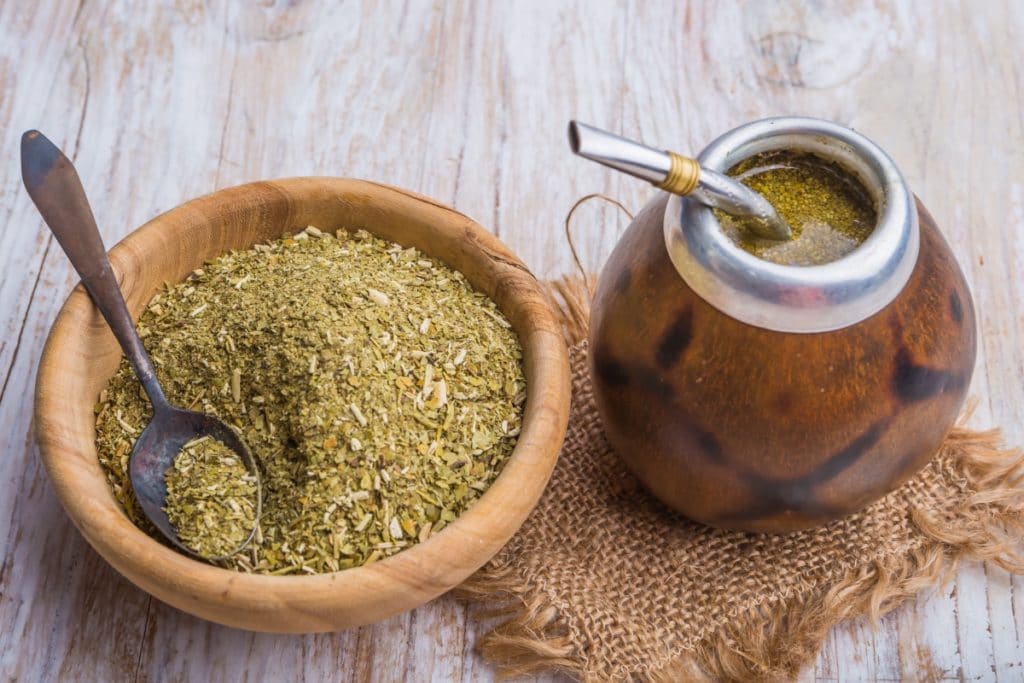
It is the highest caffeine tea with 85 milligrams of caffeine per cup, which is almost as high as coffee. This makes it the perfect substitute for that morning cup of joe!
- Comes in 1 or 2 packs
- Has a mild flavor
- Can be re-steeped a few times without losing flavor
Matcha
Matcha is another high caffeine tea, with a whopping 75 milligrams of caffeine per cup . This is because the whole tea leaves are stone-ground to produce it, and it is one of the teas where the plants are shaded for several weeks before harvest.
- Comes sweetened
- From high quality green tea leaves
- Can be used with hot and cold beverages
Pu’er (Pu-erh) Tea
Pu’er is an aged tea with an earthy flavor. It is fermented and it is one of the teas with the most caffeine. There are two types of fermentation methods for pu’er tea: the traditional and the wet-pile methods. The wet-pile method tends to be higher in caffeine.
A cup of pu’er tea contains anywhere from 60-70 milligrams of caffeine, which makes it a great substitute for coffee!
Emperor's Pu-erh (Pu'er) - Numi Organic Tea
- Comes with 16 tea bags
- Smooth & Earthy
- Can be re-steeped a few of times without losing flavor
Black Tea
Black tea is another high caffeine tea, with around 50 milligrams of caffeine per cup. Many breakfast blends come from the Indian balck tea variety of the camellia sinensis var. assamica which is generally higher in caffeine.
The caffeine content is increased further since black teas are chopped finer, are steeped longer and with boiling water.
Oolong Tea
Oolong tea is lighter and sweeter than black tea and only 10 milligrams less in caffeine than black tea. Each cup of this tea has around 40 milligrams of caffeine, which makes it a great substitute for those who don’t enjoy back tea as much or just want to change it up a bit. Plus it’s full of vitamins and minerals.
Green tea
Green tea has a delicate flavor and has been used for centuries for its health properties. Green tea contains catechins which neutralize free radicals. Free radicals can damage cells leading to disease and ageing.
The caffeine in green tea is slightly lower, with around 25 milligrams per cup, so you can drink it throughout the day and evening.
If you are looking for higher caffeine green teas, then try shaded green teas!
People Also Search For:
White Tea
White tea is one of the lightest caffeine boosters, mainly because of the water temperature used and the steeping time. It provides around 13 milligrams of caffeine per cup. Similar to green tea, you can drink it throughout the day and in between higher caffeinated teas.
It will give you a light caffeine boost without the jitters and it’s a great way to increase your water intake!
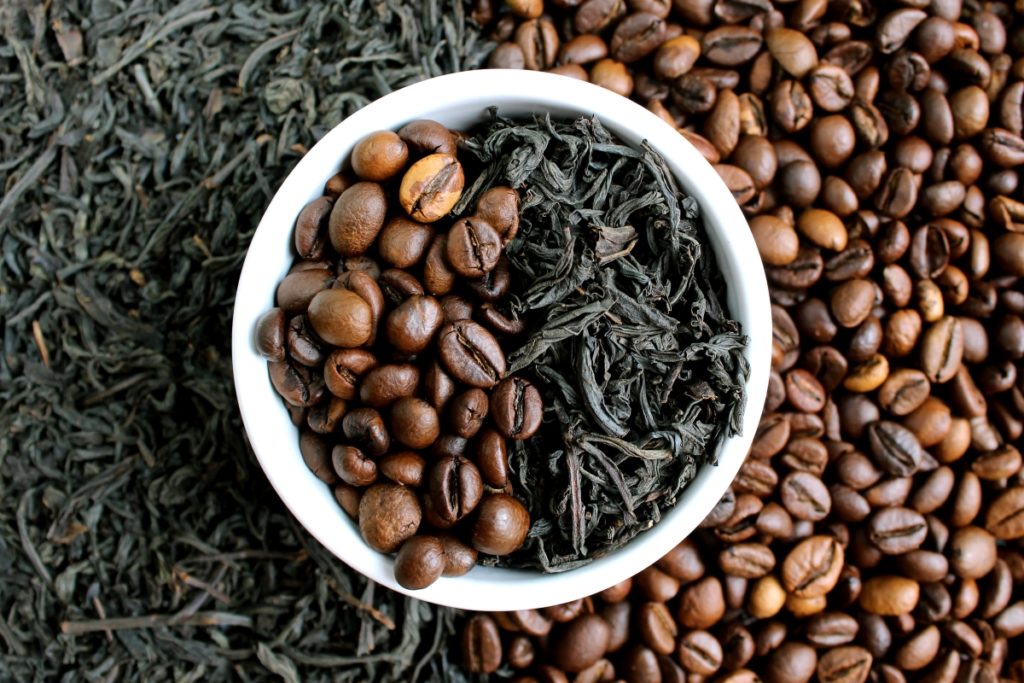
Frequently Asked Questions
Do herbal teas have caffeine?
Generally they do not, but there are exceptions. Herbal teas are not made from the same plant as ‘true teas’ like black and green tea or mate. High-caffeine tea naturally occurs in the plant it is made from. Click the link to read our post dedicated to caffeine and herbal teas.
Are there side effects of caffeine?
The FDA recommends no more than 400 milligrams of caffeine a day. Consuming more than the recommended dosage can cause restlessness, headaches, and anxiety.
What is better, tea leaves or tea bags?
Tea leaves are not ground as finely as the leaves in tea bags. When the leaves are ground finely it can destroy some of the oils in the leaves that contain the health benefits and flavor of the tea.
However, finely ground leaves tend to be higher in caffeine, so for this instance, tea bags are better.
Final Remarks
Types of teas with high caffeine content are a great alternative to drinking coffee. An eight-ounce cup of coffee contains roughly 95 milligrams of caffeine, so you can choose to substitute that with one of the high caffeine teas mentioned earlier!
You can also choose to sustain your energy levels throughout the day by drinking some of the other less caffeinated teas, like white and green teas, and avoid getting the afternoon jitters from drinking too much coffee.
Plus teas have a wide selection of flavors and have an array of health benefits that you can tap into.
So why not try a high caffeine tea to get you over that afternoon slump or to wake you up in the morning? You might be pleasantly surprised!
This article is intended for informational purposes only. It is not meant to replace professional medical advice, treatment or diagnosis. Do not consume any type of tea if you are allergic to it. The information in this article is not intended to treat serious medical conditions. Please seek professional medical advice before using home remedies.
